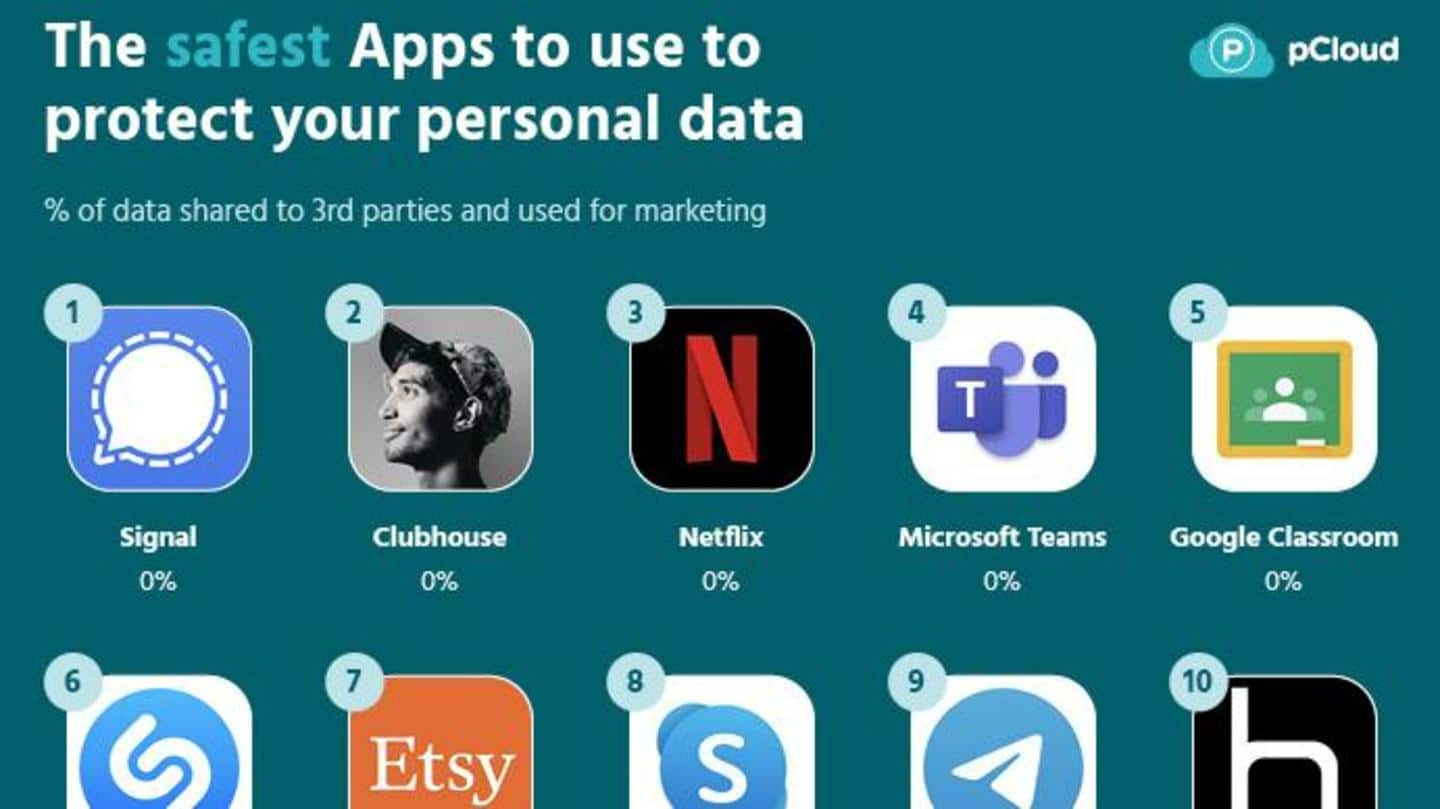
App Store privacy analysis finds Instagram, Facebook most invasive apps
What's the story
Apple's privacy campaign keeps on giving. Cloud Storage firm pCloud rummaged through Apple's brand-new privacy labels and came back with a privacy report card for apps with results that will shock no one.
Turns out, Instagram is the worst privacy offender and shares a massive 79 percent of your personal data with third-party companies. The second place is predictably taken by Facebook.
Horribly invasive
Secret behind Instagram's relevant ads: Sharing 79 percent user data
Ever wonder why Instagram ads are so relevant and attractive? That's because the app uses everything from your browsing history and personal data to even your purchasing information with third parties for targeted advertising.
Both Facebook and Instagram use as much as 86 percent of your data to train their algorithms well enough to keep you engaged in their products.
Cambridge Analytica
Facebook comes second because it has bigger fish to fry
Facebook comes second to Instagram because it shares only 56 percent of user data with third-parties compared to Instagram's 79 percent.
If that sounds modest, don't forget that Facebook doesn't use Instagram's model of selling user data to smaller brands. When Facebook sells user data, it's usually done for higher profile clients and to greater effect.
The Cambridge Analytic scandal is an example.
Superficial analysis
Signal, Clubhouse safest despite latter running compromised Chinese servers
On the flip side, pCloud's analysis found apps such as Signal, Clubhouse, Microsoft Teams, Skype, and Netflix didn't share any user data with third parties.
pCloud claims these are the safest apps to use on the App Store. But, let's not forget that apps such as Clubhouse have their servers in China, which is an ever-present risk given the nature of the communist dictatorship.
Strategic objectives
Amazon doesn't share user data; Uses it for world domination
Amazon came surprisingly clean in pCloud's analysis of App Store privacy labels. Apparently, the world's largest e-commerce entity does minimal tracking of users for its own internal advertising, and doesn't share any data with third parties.
That is largely because it is more concerned with learning user buying habits and then using the valuable data to displace popular products with the Amazon Basics' line-up.